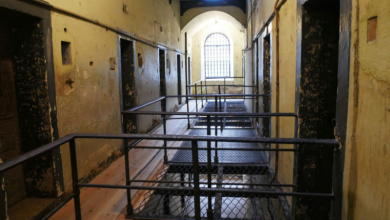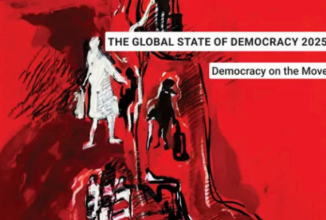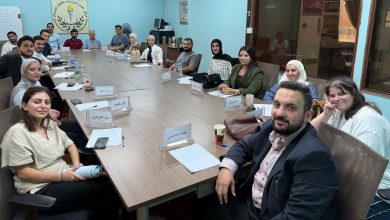
The opening session of the 28th session of the Committee on Enforced Disappearances was held in Geneva on Monday 16 March 2025.
The representative of the General Secretariat opened the 512th meeting by recalling that the current world situation is full of challenges that continue to highlight the urgent and indispensable nature of the elimination of the crime of enforced disappearance. This ongoing violation of human rights, which occurs during national and international conflicts, is a daily reality for victims in all regions of the world. This reinforces the creation of a climate of fear and injustice, which is why the representative of the General Secretariat recalls the importance of universal ratification of the International Convention for the Protection of All Persons from Enforced Disappearance.
The World Conference on Enforced Disappearances, which took place two months earlier, was a turning point in the fight against enforced disappearances. It led to collective action and the drafting of recommendations and concrete commitments by the conference partners. These initiatives included the creation of a regional network by victims of enforced disappearance in Africa. Other proposals included the organisation of regular meetings of women researchers, the promotion of civil society contributions to the committee, and the creation of a global youth network against enforced disappearances. The Congress also highlighted the centrality of the views of the families and loved ones of disappeared persons, as well as the essential role of women in the fight against enforced disappearances.
The representative of the General Secretariat emphasised the crucial role of the ongoing work of the Urgent Action Committee. Through this procedure, the Committee can ask a State Party to take immediate action to launch a search for a disappeared person and conduct investigations into his or her disappearance. Since the last session, 120 urgent requests have been registered. However, there are still more than 1,400 urgent actions pending before the Committee.
The Chairman then reaffirmed that international law is the foundation of international peace and security, yet it is challenged, ignored or violated on a daily basis by major powers who would like to give precedence to the law of force over the force of law. Investing in human rights means investing in security and development, supporting the families of the disappeared, and ensuring that their right to truth, reparation and justice is guaranteed. The State must comply with its duty to remember and guarantee the right to peace and prosperity for future generations.
Mr Dabbagh, the family of victims of enforced disappearance by the former Syrian regime, closed the opening ceremony with a testimonial. He described his fight against the disappearance of his Franco-Syrian brother and nephew in Damascus by the former Syrian regime over a period of almost 15 years. He calls his struggle a fight for truth and justice. He fought relentlessly against oblivion, impunity and the terror orchestrated by the Syrian regime at the time. His fight demonstrates the will to use French and international legal tools to deal with crimes against humanity. The arbitrary arrest of her brother and nephew in 2013 in Damascus by the air force intelligence services turned into an enforced disappearance, and then into an ordeal marked by torture, as witness testimony and court documents revealed at the trial held in Paris in May 2024. These enforced disappearances highlight the blind and systemic brutality of a regime that attacks families in order to establish its rule through terror.
But Mr Dabbagh did not give up. In 2013, he and his family approached the Syrian, French and international authorities. Then in 2016, in collaboration with the FIDH, he filed a complaint with the Paris public prosecutor’s office for crimes against humanity. This legal action was not only a desire to obtain justice for his brother and nephew, but also to take part in the global fight against the atrocities committed by the Syrian regime. Following the fall of the Assad regime, hope was born for the families and loved ones of the victims of the disappeared that the new authorities would take over the files on the enforced disappearances of hundreds of thousands of people, thanks to transitional justice. Mr Dabbagh concluded his testimony by declaring that the truth must be established and justice must be rendered, without which reparation between communities will not be possible, and nothing can guarantee that these atrocities will not be repeated.
This testimony reinforces the idea of the importance of ratifying the above-mentioned convention, in order to be able to use universal jurisdiction to combat impunity when certain countries have not ratified the Rome Statute and are unable or unwilling to organise trials.
The Amman Center for Human Rights Studies endorses all the points made at this opening meeting and encourages all States that have not yet ratified the International Convention for the Protection of All Persons from Enforced Disappearance to do so, particularly those in the Middle East region.





